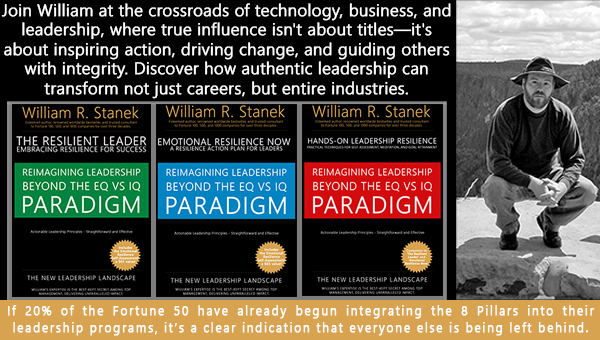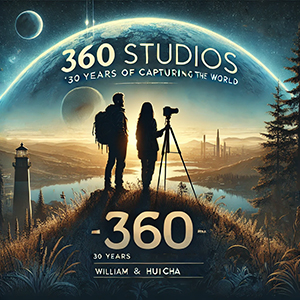
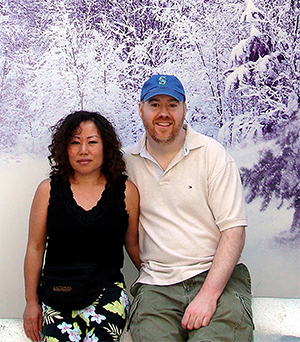
Spotlight on Life's Milestones
Life’s defining moments shape who we are and the paths we take. In this series, William and Hui Cha Stanek invite you to reflect on pivotal milestones, celebrating the journey and the lessons learned along the way.
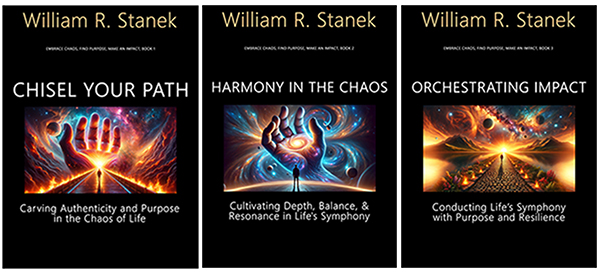
Transform your life with practical wisdom. Discover William Stanek's 'Living Well' series—your guide to a balanced and fulfilling life.
Discover William Stanek's Exclusive Art Collection
Explore and purchase the stunning art featured on this site. Own a piece of William Stanek's unique and captivating artwork today!
(April 25, 2025) Facing Regrets: Turning What-Ifs into Wisdom
Regret is an inescapable part of the human experience, a powerful emotion that often arises from missed opportunities, unfulfilled dreams, and decisions we wish we could change. It’s a milestone we all encounter at some point in our lives, forcing us to confront the gap between what is and what might have been. But while regret can be painful, it also holds the potential to be one of our greatest teachers. By reflecting on our regrets and transforming them into wisdom, we can gain valuable insights, find peace with the past, and use these lessons to guide our future. In this article, we’ll explore how to face regrets head-on, how to turn them into a source of wisdom, and how to use the power of hindsight to live a more intentional and fulfilled life.
The Nature of Regret: Understanding Its Roots and Impact
Regret is a complex emotion, one that is often rooted in the recognition that we made a choice—or failed to make a choice—that led to an outcome we now wish had been different. Whether it’s a missed opportunity, a relationship that didn’t work out, or a career path we didn’t pursue, regret can stir up feelings of disappointment, guilt, and even grief. These emotions can linger, affecting our sense of self-worth and our outlook on life.
However, regret is also a reflection of our values and desires. It’s an indication that something was important to us, that we cared deeply about a certain outcome, and that we’re aware of the potential for growth and change. This awareness is a powerful tool, one that can help us learn from our past, make more informed decisions in the future, and live in alignment with our true selves.
In my own life, I’ve had my share of regrets—moments when I wished I had made a different choice, taken a different path, or acted with more wisdom. These regrets have ranged from small, everyday decisions to larger, more consequential ones. But as I’ve navigated these feelings, I’ve come to realize that regret doesn’t have to be a source of ongoing pain. Instead, it can be a source of insight, motivation, and even transformation.
Confronting Regrets: Facing the What-Ifs with Honesty and Compassion
One of the most important steps in dealing with regret is to confront it directly. This means acknowledging the choices we made (or didn’t make), recognizing the feelings of regret that arise, and being honest with ourselves about what we wish had been different. This process requires courage, as it often involves facing uncomfortable emotions and admitting that we are not perfect.
For me, one of the most significant regrets in my life was related to a career decision I made early on. After leaving the military, I had an opportunity to pursue a particular job that seemed like a perfect fit for my skills and interests. However, at the time, I was also dealing with personal challenges and fears about stepping into a new and unfamiliar role. Out of caution and perhaps a bit of self-doubt, I chose not to pursue the opportunity. Looking back, I realized that this decision was driven more by fear than by a genuine assessment of what I wanted or what I was capable of achieving.
For a long time, I carried this regret with me, wondering what might have happened if I had taken that job, how my life and career might have been different, and whether I had missed out on something significant. This regret was a heavy burden, one that affected my confidence and made me second-guess other decisions I made in my career.
But over time, I realized that dwelling on this regret was not serving me. Instead of allowing it to weigh me down, I decided to confront it head-on. I took the time to reflect on the decision, to understand the reasons behind it, and to acknowledge the lessons it had taught me. I recognized that while I couldn’t change the past, I could choose to learn from it and use that wisdom to guide my future decisions.
Turning Regrets into Wisdom: Learning from the Past
The process of turning regret into wisdom involves reflection, self-compassion, and a commitment to growth. It’s about looking back at our choices with an open mind, understanding why we made them, and using that understanding to make better choices in the future. It’s about accepting that we are human, that we all make mistakes, and that each of these mistakes is an opportunity for learning and growth.
One of the key lessons I’ve learned from my regrets is the importance of acting with courage and conviction. Looking back on that missed career opportunity, I realized that my decision was driven by fear rather than by a true assessment of what I wanted or what I was capable of. This insight has been invaluable in guiding my future decisions. Whenever I’m faced with a choice that scares me or challenges my comfort zone, I remind myself of that past regret and use it as a motivator to act with courage. I’ve learned that it’s better to take a chance and face the possibility of failure than to let fear dictate my choices and risk missing out on something meaningful.
Another lesson I’ve gained from my regrets is the importance of living in alignment with my values. Regrets often arise when we make choices that are not in harmony with who we truly are or what we truly want. By reflecting on past regrets, I’ve been able to identify patterns in my decision-making, understand where I’ve strayed from my values, and make a conscious effort to live more authentically. This process has helped me to be more intentional in my choices, to prioritize what truly matters to me, and to create a life that reflects my deepest values and desires.
The Power of Hindsight: Using Regret to Shape the Future
Hindsight is often said to be 20/20, and while we can’t change the past, we can use the clarity it provides to shape our future. By reflecting on our regrets and the lessons they’ve taught us, we can make more informed, intentional decisions moving forward. This process of using hindsight to guide the future is a powerful way to turn what-ifs into wisdom.
For me, one of the most valuable ways to use hindsight is to apply the lessons I’ve learned from past regrets to new situations. Whenever I’m faced with a difficult decision or a new opportunity, I take the time to reflect on similar situations from my past, considering what I learned from those experiences and how I can apply that knowledge to the present moment. This practice of reflection helps me to make more confident, informed decisions, and to avoid repeating the same mistakes.
Another way I’ve used hindsight to shape my future is by setting new goals and priorities that are informed by my past experiences. For example, after reflecting on my past career regrets, I made a conscious decision to pursue opportunities that aligned with my passions and values, even if they seemed challenging or uncertain. This shift in perspective has led me to new and fulfilling experiences that I might have otherwise missed out on. By using hindsight to guide my future, I’ve been able to turn my regrets into a source of motivation and direction, helping me to live a more purposeful and intentional life.
Embracing Regret as a Milestone: Finding Peace and Moving Forward
Ultimately, the goal of confronting and reflecting on our regrets is to find peace with the past and to move forward with a sense of purpose and clarity. While we can’t change what has already happened, we can choose how we respond to it. By embracing regret as a milestone in our journey, we can transform it from a source of pain into a source of wisdom and growth.
One of the most important steps in this process is practicing self-compassion. It’s easy to be hard on ourselves for the mistakes we’ve made, but it’s important to remember that we are all imperfect, that we all have moments of weakness, and that regret is a natural part of life. By treating ourselves with kindness and understanding, we can begin to heal from the pain of regret and to see it as a valuable part of our personal growth.
Another important aspect of finding peace with regret is acceptance. This means accepting that the past is unchangeable, that we did the best we could with the information and resources we had at the time, and that it’s okay to have regrets. Acceptance allows us to let go of the need to rewrite history and to focus instead on what we can do in the present and future to live more fully and authentically.
For me, finding peace with my regrets has been a gradual process, one that involves ongoing reflection, self-compassion, and a commitment to growth. While there are still moments when I look back and wish things had been different, I’ve learned to view those moments as opportunities for learning and growth. By embracing regret as a milestone, I’ve been able to find peace with the past and to move forward with a renewed sense of purpose and clarity.
A Call to Action: Embrace the Milestone of Regret
Regret is a powerful milestone in the journey of life, one that offers the opportunity for reflection, learning, and growth. By confronting our regrets, reflecting on their lessons, and using the power of hindsight to guide our future, we can turn what-ifs into wisdom and live a more intentional and fulfilled life.
Here are a few steps you can take to embrace the milestone of regret:
-
Acknowledge Your Regrets: Take the time to acknowledge and reflect on the regrets you carry. Be honest with yourself about the choices you made and the feelings of regret that arise.
-
Practice Self-Compassion: Treat yourself with kindness and understanding as you navigate the feelings of regret. Remember that everyone makes mistakes and that regret is a natural part of the human experience.
-
Reflect on the Lessons: Consider what your regrets have taught you about yourself, your values, and your decision-making process. Use these insights to inform your future choices and to live more intentionally.
-
Use Hindsight to Guide Your Future: Apply the lessons you’ve learned from past regrets to new situations. Use the clarity of hindsight to make more informed, confident decisions moving forward.
-
Accept the Past: Accept that the past is unchangeable and that it’s okay to have regrets. Focus on what you can do in the present and future to live in alignment with your values and desires.
-
Find Peace and Move Forward: Work towards finding peace with your regrets by embracing them as a valuable part of your personal growth. Use the wisdom you’ve gained to move forward with a sense of purpose and clarity.
Regret is a powerful teacher, one that can offer profound insights and guide us toward a more intentional and fulfilling life. By embracing the milestone of regret, you can turn what-ifs into wisdom, find peace with the past, and continue on your journey of living well.
Embrace the milestone of regret, learn from your past, and continue on your journey of living well.
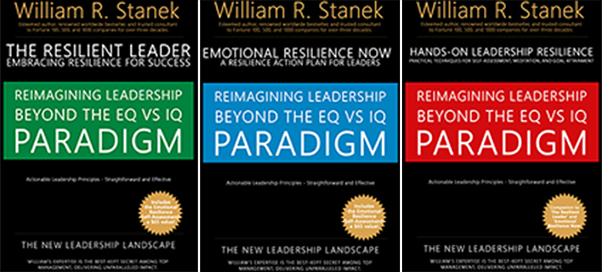
Join William at the crossroads of technology, business, and leadership, where true influence isn't about titles - it's about inspiring action, driving change, and guiding others with integrity. Discover how authentic leadership can transform not just careers, but entire industries.
Bring Inspiration Home
Enhance your space with William Stanek's evocative art. Each piece is crafted to inspire and uplift your everyday life.
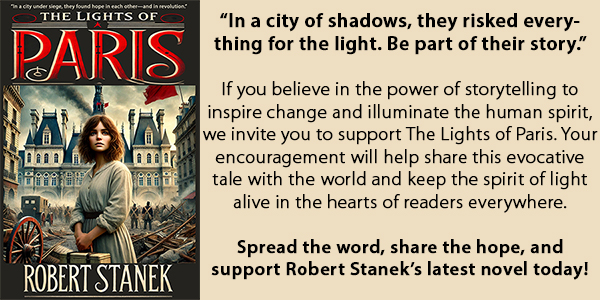
Support The Lights of Paris by Robert Stanek, William Stanek's pen name! Through vivid historical detail and deeply moving character stories, Robert takes readers on an unforgettable journey through one of history’s most transformative times.
